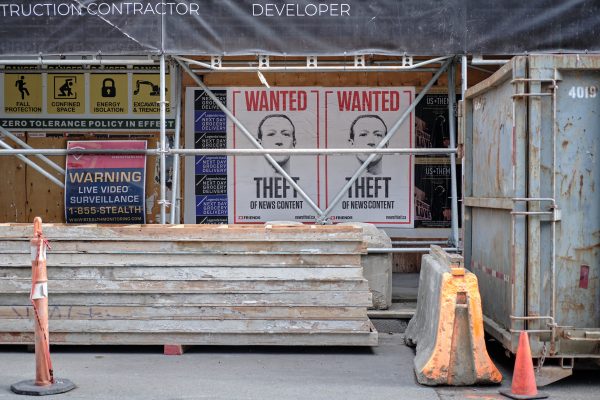The Hungarian government voiced concerns about a recent trend where the Big Tech cartel dominates public opinion through arbitrary enforcement of censorship policies.
Judit Varga, Hungarian Minister of Justice, stated that if the government fails to control the activities of the “pseudo legal system” being established by Big Tech, the oligopoly will “rule our lives and force us into a bubble,” she said during an online forum held by Hungary’s 21st Century Institute.
Varga is also doubtful whether the guidelines being followed by the platforms are even in line with the rule of law as practiced in her country. She is cautious about Facebook’s decision to reduce political content on the platform, and is concerned that the policy might not be implemented in an unbiased manner. The Minister slammed social media firms for having turned their platforms into what she called “drugs,” hooking people initially and then seeking to influence their opinion after the fact.
She said that the power of social media platforms to censor any person without a fair procedure or transparency is problematic.
Varga promised to introduce legislation to regulate social media from censoring, banning, or suppressing content that does not violate Hungarian law, “In Hungary, similarly to other European countries, we do not want to set any other expectations for large tech companies than a legal, transparent and controllable operation,” she said.
Success
You are now signed up for our newsletter
Success
Check your email to complete sign up
“Nothing more than what applies to other companies and small businesses too…[Hungary wants] to protect the personal data and freedom of expression of the Hungarian people at the highest level and within the framework of a transparent regulation,” she said in a statement on Facebook.
Varga’s statements come as another central European nation, Poland, is taking strict action against social media censorship. The Polish government has proposed a new law that will empower citizens who have their posts blocked, deleted, or limited by social media platforms to appeal for redress.
A parliament-appointed free speech board will judge the case. If the platforms are found guilty, they will be charged fines of up to 50 million zloty ($14 million USD approx.). Authorities can also force social media platforms to restore the accounts of people who have been banned if the content posted is considered legal under the Polish Constitution.

In Sweden, the leaders of populist party Sweden Democrats have also demanded that the government draft legislation to ensure freedom of speech on social media platforms. The party noted that only content deemed lawfully illegal must be deleted from social media. For instance, illegal threats are as illegal online as it is “on the street,” they said in a debate article.
Even as Poland and Hungary are batting for laws to protect online speech, some are concerned whether such laws will be used in a biased manner by governments.
Both nations have faced criticism for erosion of media freedoms, with the Reporters Without Borders’ Press Freedom Index ranking Poland and Hungary 62nd and 89th spot respectively in a list of 180 countries.
Panoptykon Foundation, a Polish digital rights organization, is troubled by the questionable definition of “unlawful content” as defined by the government, and feels that the free speech board might be politically compromised. This is especially true given that the current ruling party of Poland, the Law and Justice Party, has often been accused of maintaining strong control over the media.
“Over the last few years, the current government has introduced several legislative changes and other reforms which have increased its control over public discourse offline,” Dorota Głowacka, a lawyer with the Panoptykon Foundation, said to Emerging Europe.
Glowacka referenced “a law enabling the political takeover of public media which facilitated turning it into a propaganda instrument, or the acquisition of the dominant regional press publisher by a state-owned company,” as examples.
EU regulation
The European Union has proposed the Digital Services Act (DSA), which also addresses the issue of arbitrary censorship by social media platforms. One of the provisions in the Act makes it impossible for companies to block a user’s account without informing them.
The affected user will also be able to challenge bans through what is purported to be a transparent and fair online procedure. If passed, the DSA will be applicable to all member states, including Poland. As such, it is possible that the proposed national-level laws might not come to fruition, as Poland and Hungary may instead choose to follow the DSA.

Gilles Babinet, Advisor on Digital Issues at Institut Montaigne, raised the possibility of Europe looking to restrict the American Big Tech cartel, especially if trade conflict with the United States heats up.
“Overall, the Europeans remain realistic: they know that they are not in a position to impose unilateral regulations on technology, much less to demand the dismantling of American platforms. Things would probably have been different if Europe had not fallen so far behind on these issues – and had built its own meta-platform,” he told Institut Montaigne.
US action
There has been a rising demand to regulate social media platforms the same way as utilities in the United States. Earlier this month, Supreme Court Justice Clarence Thomas wrote that platforms such as Twitter and Facebook could be considered as common carriers and regulated in such a manner. He dismissed the notion that people unhappy with Big Tech can always choose other platforms, noting that such an argument is invalid given that the platforms wield huge power over the flow of information today, unlike their alternatives.
“Today’s digital platforms provide avenues for historically unprecedented amounts of speech, including speech by government actors. Also unprecedented, however, is control of so much speech in the hands of a few private parties…We will soon have no choice but to address how our legal doctrines apply to highly concentrated, privately owned information infrastructure such as digital platforms,” Thomas wrote in the submission.
Follow us on Twitter or subscribe to our email list


















